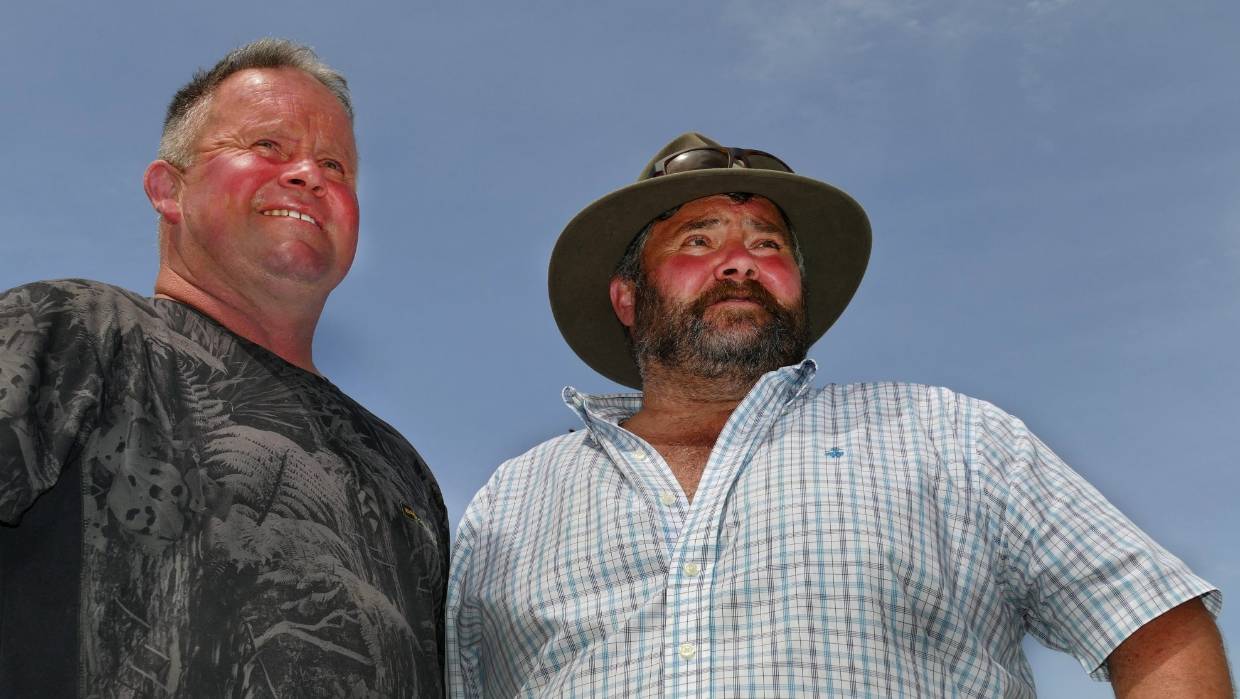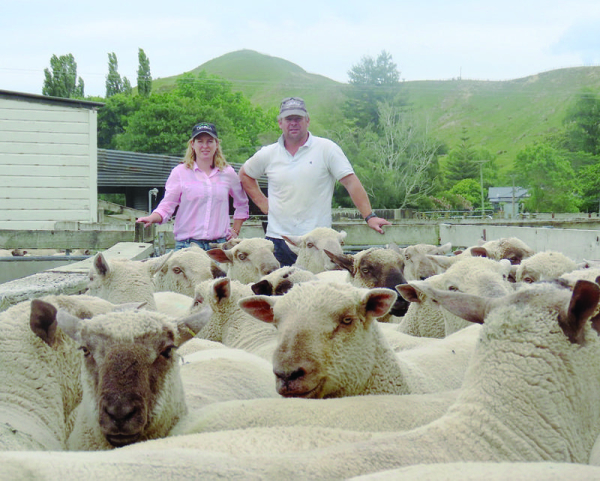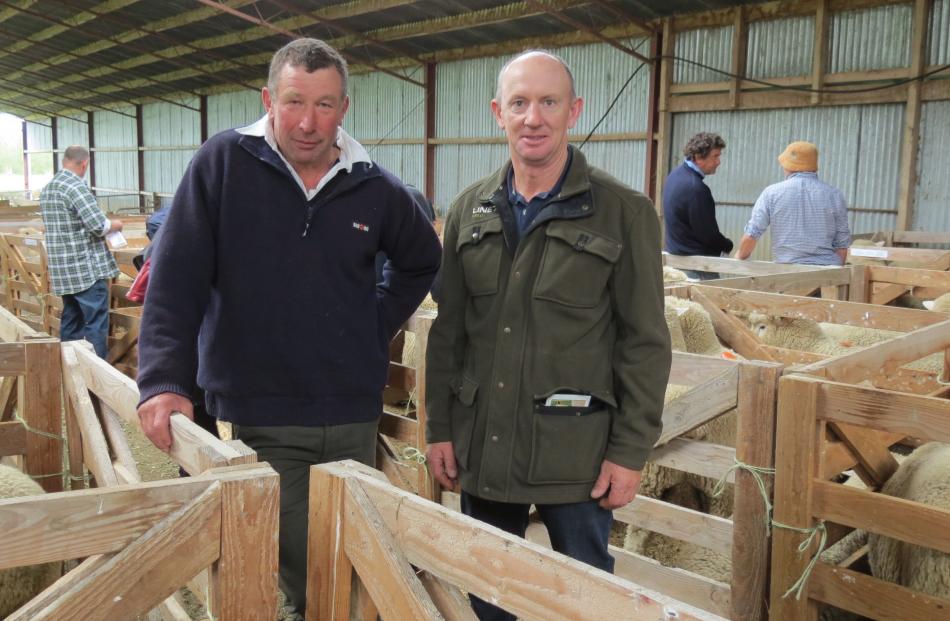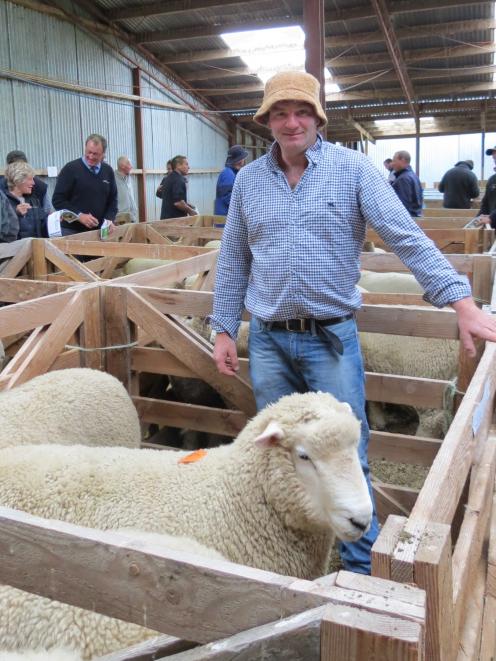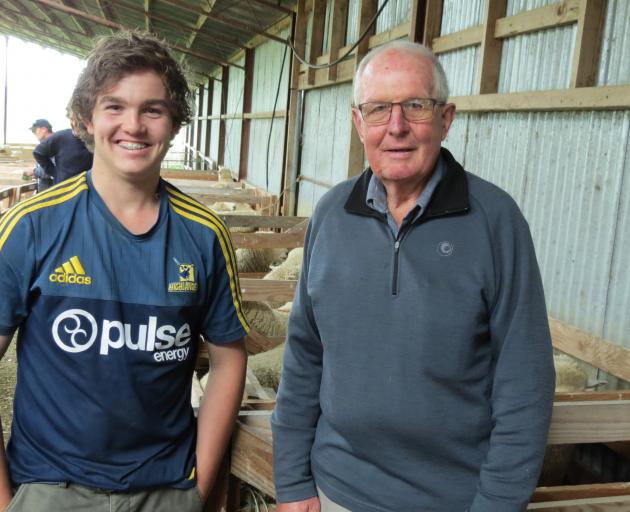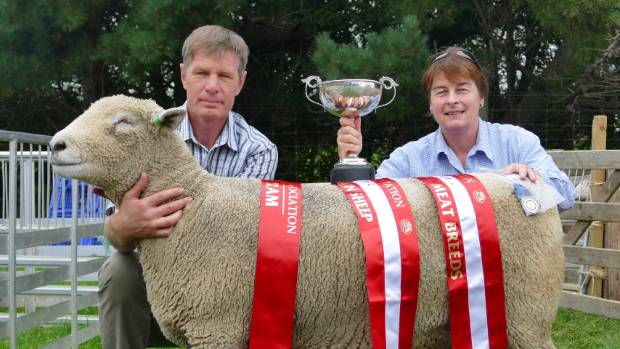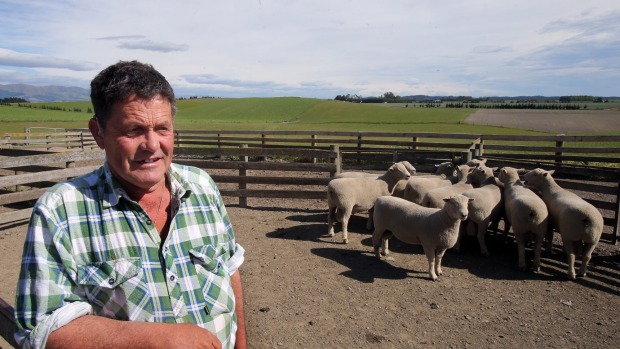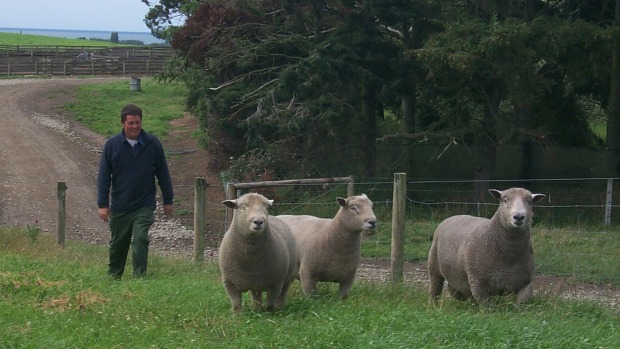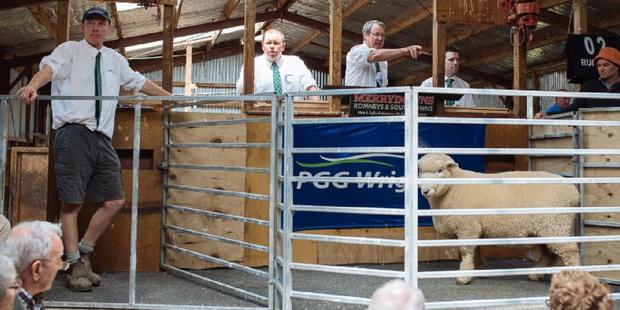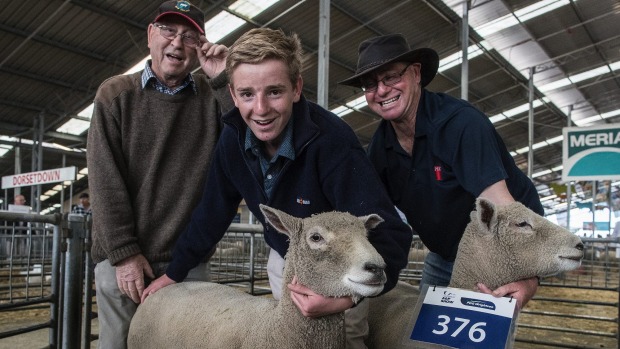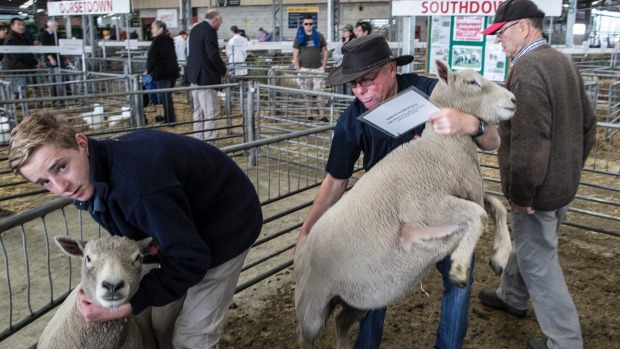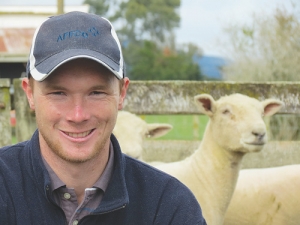Published in Central Rural Life Dec 9 2015
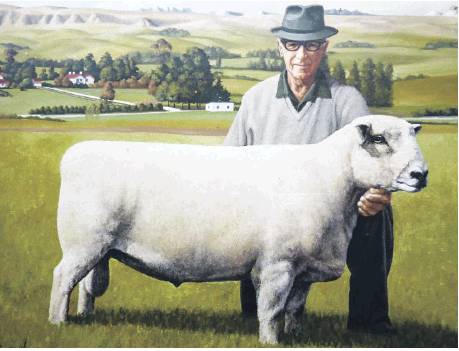
Legacy . . . Henry Andrew set the standard for Southdown rams with the likes of this champion. This image was painted from a photograph from the 1960s and hangs in the Punchbowl homestead.
A century of ram breeding has been celebrated at North Otago’s Punchbowl Farm.
Doug and Jeannie Brown have been living at the property near Maheno since 1989, continuing the family farming business established by Mr Brown’s maternal grandfather, Henry Andrew, in 1915.
Mr Andrew spent 70 years on the land, crafting a reputation as a breeder of exceptional Southdown sheep.
In a 1977 edition of N.Z. Meat & Wool, writer R.M. Moir said ‘‘. . .it would be very hard to place anyone above Mr H.J. Andrew in the field of improving New Zealand’s livestock’’.
‘‘His contribution to our farm production, through his work of improvement in Southdown sheep, has been of tremendous importance and must place him among the greatest sheep breeders seen in New Zealand,’’ the article said.
It credited Mr Andrew for keeping this country at the top of the world export lamb market.
‘‘Breeders from all over New Zealand clamoured to buy Henry Andrew’s famous sheep and the the ‘Punchbowl’ type became the standard aimed at by all successful breeders.’’
The flock was founded with ewes from H. Pannett and J.B. Reid, and rams imported from England.
Mr Andrew dominated sheep shows for decades. Even after he stopped exhibiting his stock, championships were won by their progeny.
Punchbowl rams set world record prices for Southdowns at the Feilding Stud Ram Fair in the 1940s and 1950s. From 1964, when Mr Andrew began holding his own annual sale at the farm, the prices paid were often the highest of the year for the breed.
Punchbowl sheep were exported to England, the United States, Australia, and Japan.
Mr Brown said his grandfather was ‘‘a perfectionist’’, with the farm immaculately tidy. Most of the fence posts on the property were painted white, which was possible in times of abundant labour.
‘‘He was a bit of a legend.’’
Mr Andrew dispersed his Southdown stud in 1978 and his Poll Dorset stud about 1984.
When the Browns moved into the Punchbowl homestead, they continued to develop the Suffolk stud they had already founded. They also breed Poll Dorsets.
‘‘Suffolk and Poll Dorset rams are dominant breeds in the Central Progeny Test for outstanding growth to weaning with 15 out of the top 25 sires being from these breeds,’’ Mr Brown said.
‘‘We have concentrated on breeding medium-framed, thick, hardier Suffolks and Poll Dorsets without compromising growth.’’
The Browns have crossed both the Suffolk and Poll Dorset with Texel to produce lambs that perform well in areas with dry summers. They mature early and are hardy and high-yielding.
Today’s Punchbowl rams are the progeny of more than 1000 SIL (Sheep Improvement Ltd) recorded ewes, with only the top 30% retained for sale.
Most clients are in South Canterbury and North and East Otago’s eastern dryland, where conditions are similar to Punchbowl’s.
Mr Brown said sheep farming got harder as ewe numbers dropped, but ‘‘big production gains’’ in recent decades had helped to hold up the industry in terms of meat output.
‘‘I’d like to think it will stabilise.’’
The Browns planned to continue breeding rams, but were also branching out by investing in the North Otago Irrigation Company’s expansion. A block of land near Totara would be watered from September next year with two centre-pivots.
The land use was not yet decided, but could include more lamb finishing and beef grazing.
Mr Brown is standing down after 14 years as a director of the Alliance Group meat processing cooperative when its annual meeting is held in Oamaru on December 17.
You can read more about Punchbowl here in our history pages

